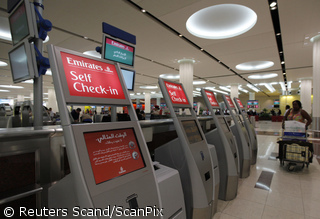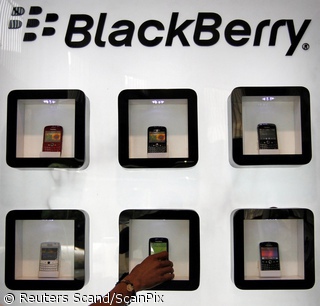Founders of a new antispam service say they have developed a system to convince spammers to remove specific e-mail addresses from their mailing lists
Published:
16 September 2003 y., Tuesday
Founders of a new antispam service say they have developed a system to convince spammers to remove specific e-mail addresses from their mailing lists, but two major spam-fighting groups are warning potential subscribers to stay away.
The service, offered by San Antonio, Texas-based Global Removal, charges subscribers a $5 lifetime fee to have their e-mail addresses put on a permanent do-not-spam list. Addresses on the list are then compared with, and removed from, mailing lists maintained by Global Removal's partnering businesses -- more than 50 known spammers and an equal number of legitimate e-mail marketers.
Global Removal CEO Tom Jackson believes that, unlike other attempts at creating do-not-spam lists, his company's system will work because it gives spammers an incentive to cooperate: money.
Although businesses that sign up to partner with Global Removal agree to remove addresses from their lists for free, they are enrolled in an affiliate program that earns them $1 for every new subscriber that they bring to the service.
To keep Internet users from being bombarded with messages about Global Removal, the businesses are only allowed to send out one message about the service to their cleansed mailing lists.
Šaltinis:
wired.com
Copying, publishing, announcing any information from the News.lt portal without written permission of News.lt editorial office is prohibited.
The most popular articles
Software company announced new structure_ of it_s business.
more »
 Unisys Corporation (NYSE: UIS) announced enhancements to its Baggage Reconciliation System (BRS) featuring more detailed information about baggage handling requirements for incoming flights, real-time monitoring and alerts of service level agreements (SLAs), and a mobile app to provide passengers with live updates on when and where to collect their bags.
more »
Unisys Corporation (NYSE: UIS) announced enhancements to its Baggage Reconciliation System (BRS) featuring more detailed information about baggage handling requirements for incoming flights, real-time monitoring and alerts of service level agreements (SLAs), and a mobile app to provide passengers with live updates on when and where to collect their bags.
more »
 Samsung doubled its share of the tablet PC market in the last three months of 2012, research firm IDC has said.
more »
Samsung doubled its share of the tablet PC market in the last three months of 2012, research firm IDC has said.
more »
 Facebook boss Mark Zuckerberg has strongly denied the social network is planning to release its own phone.
more »
Facebook boss Mark Zuckerberg has strongly denied the social network is planning to release its own phone.
more »
 The OnLive gaming service is to be made available to Google TV users, following a deal with electronics firm LG. One of a handful of firms making hardware for Google TV. LG's G2 series sets have Google's TV service built in.
more »
The OnLive gaming service is to be made available to Google TV users, following a deal with electronics firm LG. One of a handful of firms making hardware for Google TV. LG's G2 series sets have Google's TV service built in.
more »
 Blackberry has become the latest smartphone to offer free wi-fi calls to users via its own software. Research In Motion (RIM) has added the facility to its Blackberry Messenger (BBM) app, which already offered an alternative to text messages.
more »
Blackberry has become the latest smartphone to offer free wi-fi calls to users via its own software. Research In Motion (RIM) has added the facility to its Blackberry Messenger (BBM) app, which already offered an alternative to text messages.
more »
 We are delighted to announce that on 26th of January SafeNet Sentinel Cloud was awarded the SiiA 2012 Best Digital Rights Management Solution!
more »
We are delighted to announce that on 26th of January SafeNet Sentinel Cloud was awarded the SiiA 2012 Best Digital Rights Management Solution!
more »
 The Spanish government has approved tough new legislation which could see websites deemed to be trading in pirated material blocked within ten days.
more »
The Spanish government has approved tough new legislation which could see websites deemed to be trading in pirated material blocked within ten days.
more »
 The Los Angeles World Airports (LAWA), which oversees airport operations for the city of Los Angeles, has awarded a contract modification to Unisys (NYSE: UIS) to upgrade its access control and alarm monitoring system, used to identify the 45,000 airport employees, contractors, police and others who work at the organization’s three airports.
more »
The Los Angeles World Airports (LAWA), which oversees airport operations for the city of Los Angeles, has awarded a contract modification to Unisys (NYSE: UIS) to upgrade its access control and alarm monitoring system, used to identify the 45,000 airport employees, contractors, police and others who work at the organization’s three airports.
more »
 Unisys Corporation (NYSE: UIS) today announced Version 2 of its Unisys Secure Private Cloud Solution, the company’s flagship cloud solution for clients’ and cloud service providers’ data centers.
more »
Unisys Corporation (NYSE: UIS) today announced Version 2 of its Unisys Secure Private Cloud Solution, the company’s flagship cloud solution for clients’ and cloud service providers’ data centers.
more »
 An American blogger has discovered three fake Apple stores operating in Kunming city, China.
more »
An American blogger has discovered three fake Apple stores operating in Kunming city, China.
more »